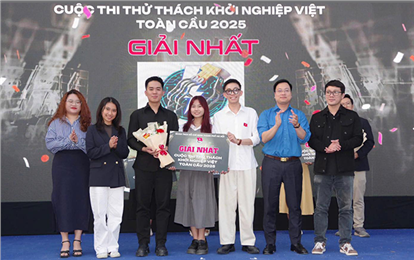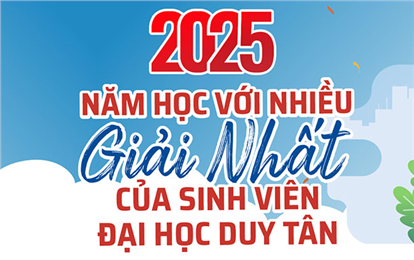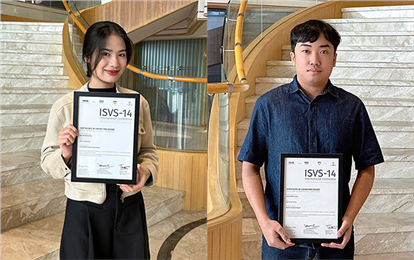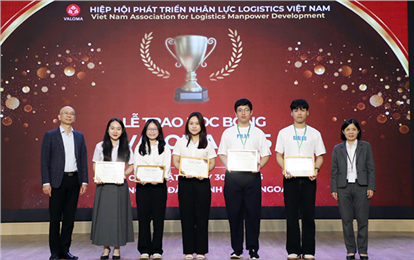Achievements
Associate Professor Nguyen Quang Hung Publishes in a Prestigious International Journal
The UK IOPScience journal, Reports on Progress in Physics (RoPP), published a review entitled “Pairing in excited nuclei”, summarizing the work of Associate Professor Nguyen Quang Hung, Director of the DTU Institute of Fundamental and Applied Sciences (IFAS); Dr. Nguyen Dinh Dang, from RIKEN, in Japan; and Professor Luciano Moretto, from the University of California Lawrence Berkeley National Laboratory.


Associate Professor Nguyen Quang Hung, Director of IFAS at Duy Tan University
The well-known and respected journal has a high profile in the international physics community, with a 2017 impact factor (IF) of 14.257. The journal’s editorial board requested him to document the extensive research that his group has conducted over the years so Associate Professor Nguyen Quang Hung and his colleagues consolidating their research results and future research plans to prepare for the article. Their review provides a consistent, in-depth and diverse overview of their research. The manuscript consists of 48 two-column pages, 115 formulae, 59 figures and 190 references.
“The journal required an interdisciplinary, general overview,” explained Mr. Nguyen Quang Hung. “The language had to be simple enough for people from different research areas to understand, making it relatively voluminous. We needed one year to complete the first version and had to investigate many other research reports on the same topic but with different research objectives, such as superconductors, metallic Nano sized objects, neutron stars and so on, in order to ensure that our review would be interdisciplinary.”
The article provides a basic, comprehensive overview of the latest research on pairing in multi-body systems, such as superconductors, metallic Nano sized clusters and grains, solid-state materials and so on, with a focus on excited nuclei.
The excited nuclei were researched at finite temperatures and/or angular momentum formed via heavy-ion fusion reactions, alpha-induced fusion reactions or inelastic scattering of light particles on heavy targets. Several interesting physical effects appeared due to the finiteness of these systems, including smoothing of the superfluid-normal phase transition, first and second order phase transitions and especially pairing and superconductivity reemergence, as published in the article.
The content of the review is based on research published in many other prestigious journals, including:
- Pairing correlation in excited nuclei with non-zero angular momentum, published in Physics Letters B (IF = 4.254) volume 35, pages 379–382, 1971.
- Quantal and Thermal Dampings of Giant Dipole Resonances in 90Zr, 120Sn, and 208Pb, published in Physical Review Letters (IF = 8.839).
- Simultaneous microscopic description of nuclear level densities and radiative strength functions by Associate Professor Nguyen Quang Hung, Dr. Nguyen Dinh Dang and research student Le Thi Quynh Huong, published in Physical Review Letters volume 118, pages 022502 1–5, 2017.
The authors of the last paper above received a congratulatory letter from the Vietnamese Minister of Science and Technology, expressing his admiration and praising the paper because of its special importance to the Vietnamese nuclear physics research community. The paper was also mentioned on the national television channel VTV1.
Associate Professor Nguyen Quang Hung is one of six scientists shortlisted for the 2019 Ta Quang Buu prize
“It was a real honor for me when RoPP contacted me to write this paper,” said Mr. Nguyen Quang Hung. “This was the first time I had written a general review with such diverse content, so I was worried. However, thanks to the enthusiastic guidance and support of leading scientists in nuclear thermodynamics theory, the article was finally completed. Professor Luciano Moretto is one of the first researchers in this field, Dr. Nguyen Dinh Dang has conducted in-depth research and was also my thesis advisor.
We are encouraged and proud of the result of the intellectual sacrifices we have made because of our passion for scientific research. Although it’s only the first article, it will help position DTU and Vietnam on the global research scene.”
For more information about research at DTU, see: DTU publishes 521 papers in 2018
(Media Center)
Other News









